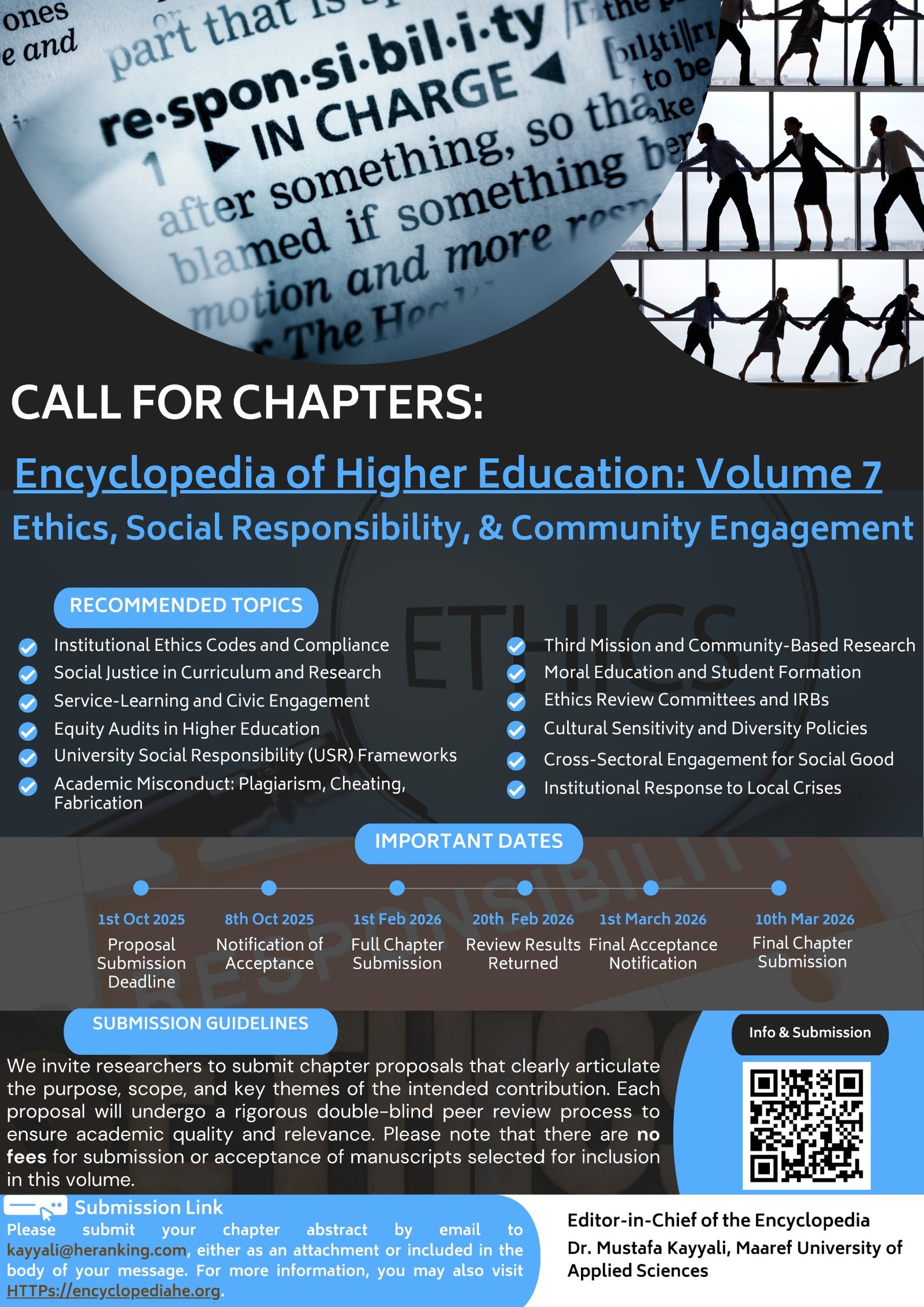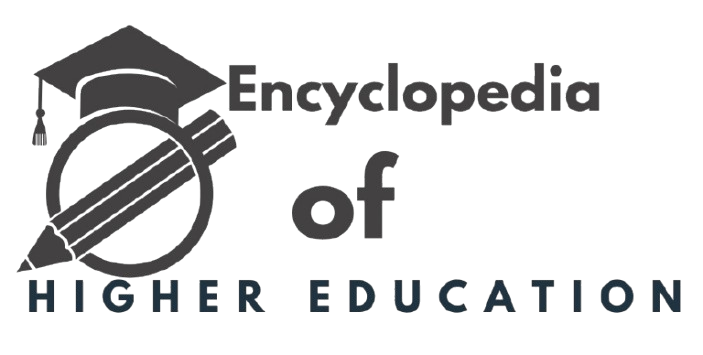Volume 7. Ethics, Social Responsibility, and Community Engagement
Overview
This volume delves into the ethical foundations, civic duties, and community-oriented roles of higher education institutions in the 21st century. As universities increasingly act as stewards of public trust, their responsibilities extend beyond teaching and research to include moral leadership, sustainable operations, inclusive governance, and meaningful societal partnerships. The chapters explore institutional ethics codes, academic misconduct, civic engagement, and the integration of Sustainable Development Goals (SDGs) into university missions. From community-based research to whistleblower protection and ethical challenges in donor relations, this volume provides a holistic view of how universities must navigate their internal values while fostering external impact. Special focus is given to marginalized communities, cultural sensitivity, and the ethical implications of emerging technologies like AI in academia.
Importance and Impact
In an era marked by global crises, widening inequalities, and societal distrust in institutions, the ethical compass of higher education has never been more vital. This volume underscores how universities must not only uphold academic integrity but also champion equity, transparency, and justice in their interactions with students, faculty, and the wider community. It calls attention to the “third mission” of universities—civic and community engagement—as a fundamental pillar of academic legitimacy. By addressing real-world challenges such as student activism, environmental stewardship, and responsible procurement, this volume reimagines the university as a socially embedded institution. It empowers leaders and scholars to shift from rhetoric to action, building ethical infrastructures that foster public trust and catalyze meaningful societal change.
Submission Guidelines
Word Count: 5,000 to 6,000 words
Each chapter should be between 5,000 and 6,000 words, including references. This length allows contributors to develop their argument with sufficient depth while remaining accessible to a global readership.
Language: English
All submissions must be written in clear, academic English. Contributors are encouraged to use inclusive language and ensure clarity for an international audience.
Citation Style: APA (7th edition preferred)
Please follow APA Style, 7th edition, for all in-text citations, reference lists, headings, and formatting. Consistency in referencing ensures academic integrity and ease of cross-referencing.
References: At least 80% published after 2021
To ensure the relevance and timeliness of each chapter, at least 80% of cited sources should be published from 2021 onward. This helps maintain the encyclopedia’s credibility and reflects current research and policy discussions.
File Format: Microsoft Word (.docx)
Submissions must be uploaded in Microsoft Word format (.docx only). This format allows for easier editing, formatting, and review throughout the publication process.
Interested in Contributing?
Researchers and authors who wish to participate in the Encyclopedia of Higher Education project are invited to send their abstract, chapter idea, or full submission directly to: kayyali@heranking.com
Alternatively, you may fill out the following form to express your interest and submit your proposal.

Recommended Topics for Contribution
Authors are welcome to explore any of the following themes—or propose their own original focus aligned with the volume’s scope:
1- Institutional Ethics Codes and Compliance
2- Academic Misconduct: Plagiarism, Cheating, Fabrication
3- Social Justice in Curriculum and Research
4- Service-Learning and Civic Engagement
5- Environmental Responsibility in Campus Practices
6- Equity Audits in Higher Education
7- University Social Responsibility (USR) Frameworks
8- Third Mission and Community-Based Research
9- Public Scholarship and Knowledge Dissemination
10- Moral Education and Student Formation
11- Ethics Review Committees and IRBs
12- Inclusive Governance and Stakeholder Participation
13- Cultural Sensitivity and Diversity Policies
14- Cross-Sectoral Engagement for Social Good
15- University-Community Partnerships and Impact
16- Institutional Response to Local Crises
17- Ethics of Institutional Sponsorships and Donors
18- Community Advisory Boards in Academic Institutions
19- Integrating SDGs into University Missions
20- Academic Boycotts and Ethical Considerations
21- Ethical Hiring and Fair Labor Practices
22- Responsible Procurement in Universities
23- Ethics of Artificial Intelligence in Universities
24- Decolonizing Engagement and Outreach
25- Civic Metrics in Institutional Reporting
26- Student Activism and Institutional Response
27- Responsible Fundraising in Higher Education
28- Role of Universities in Peacebuilding
29- Engaged Scholarship vs. Traditional Research
30- Whistleblower Protection in Academic Environments
